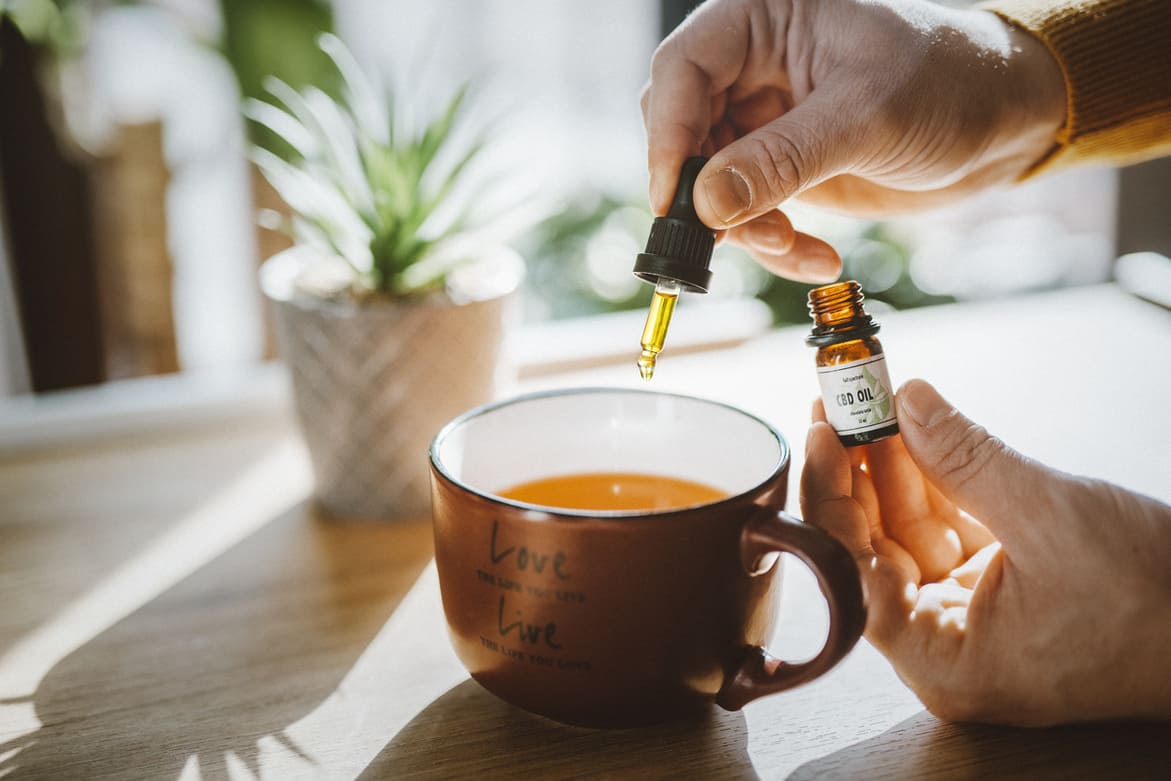CBD is the most popular chemical molecule of our time! In oil, in herbal tea, to be vaporized or inhaled, CBD is presented as the alternative to classical medication. Its sale in stores and on the internet is experiencing a tremendous development. Harmless and effective, it can be consumed without restriction. It is even recommended to take it every day. But CBD is derived from cannabis. But cannabis is a very controversial plant that contains the famous THC, a psychoactive substance ... Should we take CBD every day or not? Discover in 7 points the answer to your question.
-
- CBD for Pets
- Why take CBD to sleep better ?
- Which CBD for stress and anxiety ?
- Buy CBD for high and low blood pressure
- Buy CBD for pain relief
- Buy CBD for your addictions
- Buy CBD for the skin
- Buy CBD beauty products
- Buy CBD Wellness
- Buy CBD for focus and motivation
Product successfully added to your shopping cartQuantityTotalThere are 0 items in your cart. There is 1 item in your cart.Total productsTotal shipping To be determinedTotalContinue shopping Proceed to checkoutMy account-30% Off In Your Shopping Cart And 24H Delivery
Should I take CBD every day ?
Consuming CBD every day is safe
Naturally present in the cannabis plant, CBD (cannabidiol) is regularly confused with THC (tetrahydrocannabinol). However, there are different species of cannabis: cannabis sativa and cannabis indica. Cannabis sativa, known as hemp, is a variety of cannabis that is rich in CBD and low in THC. Consuming CBD has nothing to do with "cannabis consumption" as we usually imagine it. Unlike THC, which affects brain function and causes mood swings, cannabidiol does not cause intoxication. Not being regulated as a psychotropic drug or even a medicine by the WHO (World Health Organization), cannabidiol poses no health risk. Enjoy legal CBD with peace of mind.
It is impossible to overdose on CBD
An overdose is an acute intoxication from taking a mind-altering substance. Recognized as non-toxic by the WHO, CBD cannot cause an overdose if overdosed. This is why it is widely used in self-medication. CBD products always contain a tiny amount of THC. Consumption is permitted if the products in question remain under the authorized THC threshold (between 2 and 3%). Possessing almost no dependency potential, it cannot lead you to abuse and make you lose your senses. The opposite is true! Studies have shown that cannabidiol has a calming and balancing effect, precisely on the areas of the brain that are stimulated by THC. CBD can thus help prevent or overcome certain addictions. In particular those related to tobacco and nicotine.
The side effects of overconsumption of CBD
In the event of overdosing, don't worry. The consequences that may follow are really minimal. The side effects that have sometimes been noted are drowsiness, digestive problems, nausea, fever and loss of appetite. These side effects usually disappear after a few hours. Since CBD has the ability to interact with other substances, it is important to pay attention to the medications you are taking as well as your diet. For example, fat enhances the effects of cannabinoids. But rest assured, the body generally assimilates CBD very well. It is very well tolerated even after the absorption of high doses. If you want to have an indication on the amount of CBD to take per day, know that the standard dosage is 10 to 100 mg per day depending on weight. However, since each individual is unique, determining the right dosage will ultimately depend on several factors such as weight, metabolism, the reason for taking CBD, etc.
The best times to take CBD
Knowing that CBD is more effective internally than externally, taking CBD should take into account what you are ingesting (medication and food). It is recommended that you take CBD away from medication. When it comes to taking CBD with meals or eating a CBD-based product, be aware of the strong interaction power of this molecule. Know, for example, that fat increases the effects of cannabinoids tenfold. Then you need to consider the effects you want to achieve. The reason you are using CBD. Mornings and evenings are generally the preferred times for your CBD intake. In the morning, CBD has a calming and energizing effect. In the evening, taking CBD promotes relaxation and improves sleep quality. However, you can choose to take cannabidiol at any time. It is quite possible to use it on demand. In the case of sudden overwhelming anxiety, for example, you can also use CBD as a response to an emergency situation.
How does CBD work on our bodies
To understand this, you need to know that the human body itself produces cannabinoids. These chemical compounds couple to special receptors located in the brain. Messages are then sent to all nerve cells, causing physiological reactions in the body. This mechanism, called the endocannabinoid system, constitutes pain management unique to the human body. When the body struggles to manage pain, anxiety, or inflammation on its own, exogenous cannabinoids (from outside the human body) can be used to stimulate neural receptors and produce relaxing and anti-inflammatory effects. This is where CBD comes in. We've known since 1970 that CBD is a plant cannabinoid from cannabis. Studies have revealed that it is able to regulate the endocannabinoid system by binding to cannabinoid receptors in the body. Activating the endocannabinoid system, cannabidiol then acts directly on the human central nervous system and immune system. In doing so, it stimulates serotonin, known as the "happy hormone," and produces a powerful relaxing effect. This action ultimately reveals the fascinating synergy that exists between hemp and humans.
Our tips for incorporating CBD into your routine
It's up to you to determine why you use CBD, when and how you use it. It's also important to think about how you're going to ingest this molecule. You have a wide choice: hemp flowers, resin, CBD oil (whose distribution by drops allows to control the dosage), drinks, food... Also, don't hesitate to test different routines to find the one that suits you. You must learn to listen to your body, to interpret the signals it sends you. And you are the best person to do that! Some ideas to help you incorporate CBD into your routine:
- CBD in your morning routine for serenity and calm;
- CBD during meals and snacks for relaxation and tenfold effects;
- of CBD before and after physical activity for concentration and recovery;
- of CBD before bedtime for relaxation and sleep.
How long does CBD stay in the body ?
The length of time CBD stays in the body is not the same for everyone. The chemical interaction between cannabidiol and the human body is not fixed. Receptors in the human endocannabinoid system, responsible for interactions with CBD, change as the body's physiology evolves over time. Each individual assimilates and eliminates CBD at their own pace. This depends on the method of administration used. The effects can last from a few hours to a few days for ingestion or a few minutes to a few hours for inhalation.
All the information on our website is intended to help you understand our products. It does not constitute medical advice and is certainly not a substitute for specialist medical advice. We recommend that you seek the advice of a specialist before consuming any cbd product.Discretion & SpeedLoyalty RewardResponsive Customer ServicePREMIUM QUALITYNewsletterClick here to subscribe to our newsletter!
NewsletterThe best offers, good advice?
Sign up now!100% secure payment© 2026 - Magna CBD
Footer Block


